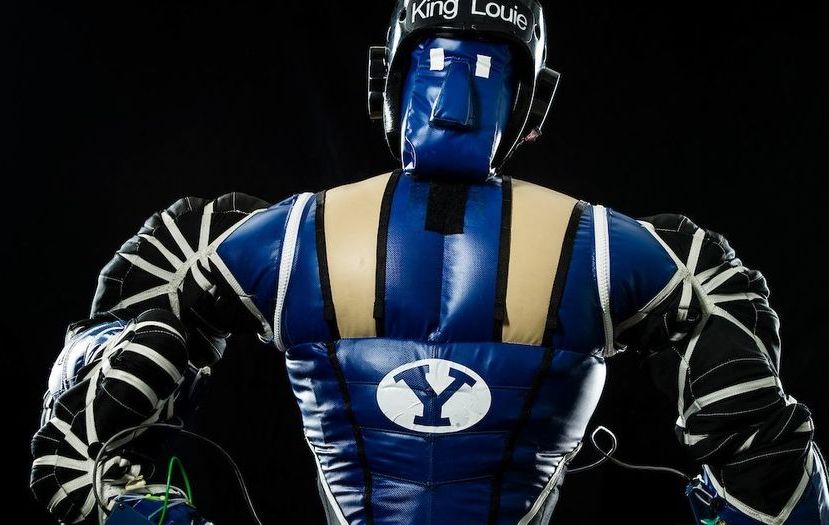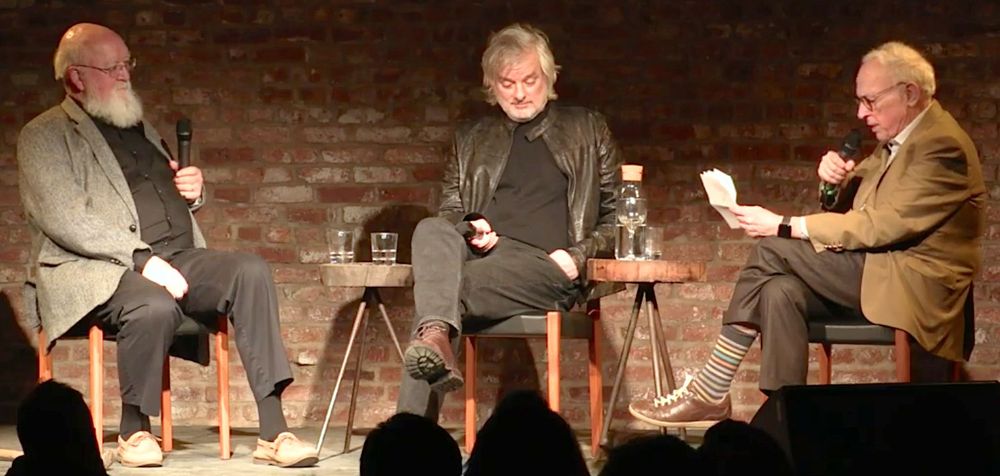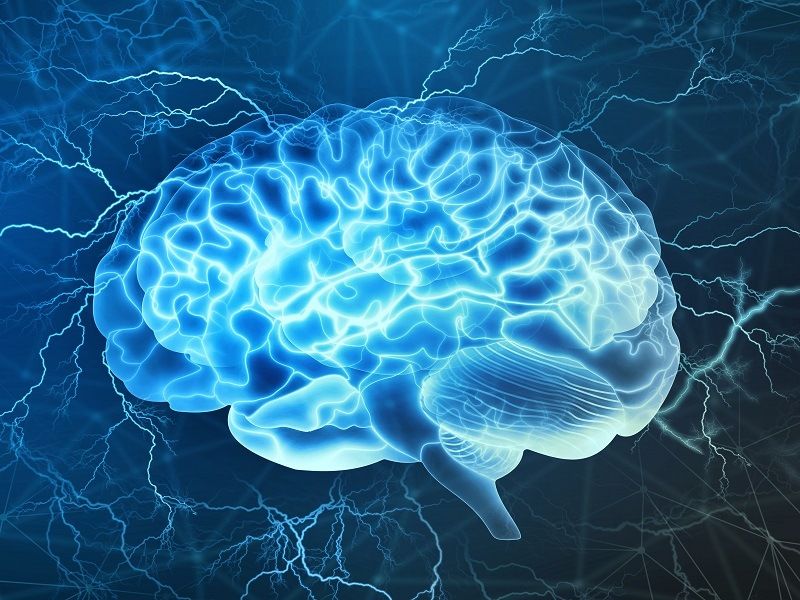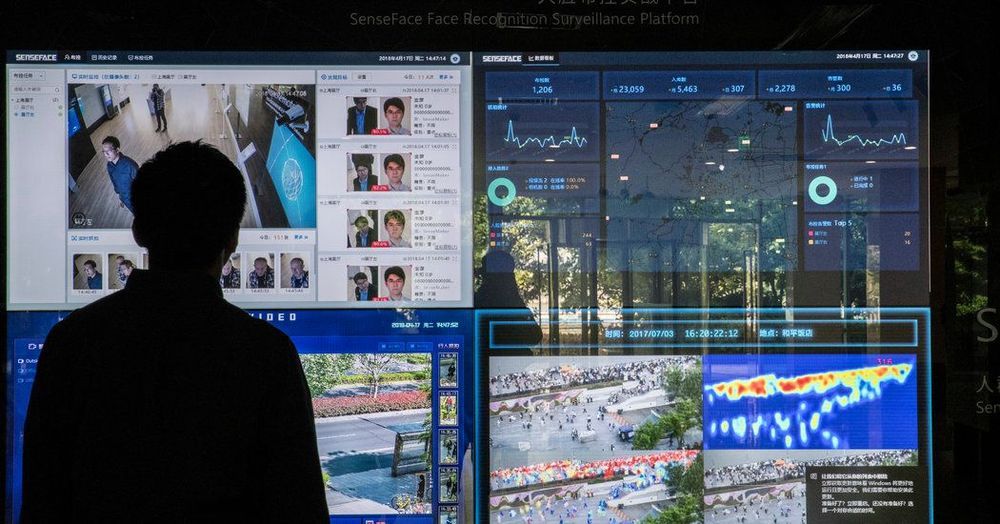With funding from NASA, researchers are exploring how to control inflatable robots for future space missions.



David Chalmers is University Professor of Philosophy and Neural Science and co-director of the Center for Mind, Brain, and Consciousness at New York University. He is best known for his work on consciousness, including his formulation of the “hard problem” of consciousness; Daniel C. Dennett is University Professor and Austin B. Fletcher Professor of Philosophy and director of the Center for Cognitive Studies at Tufts University. He is the author of a dozen books, including Consciousness Explained, and, most recently, From Bacteria to Bach and Back: The Evolution of Minds; John Brockman, moderator, is a cultural impresario whose career has encompassed the avant-garde art world, science, books, software, and the Internet. He is the author of By The Late John Brockman and The Third Culture; editor of the Edge Annual Question book series, and Possible Minds: 25 Ways of Looking at AI.
[ED. NOTE: On Saturday, March 9th, more than 1200 people jammed into Pioneer Works in Red Hook, Brooklyn, for a conversation between two of our greatest philosophers, David Chalmers and Daniel C. Dennett: “Is Superintelligence Impossible?” the next event in Edge’s ongoing “Possible Minds Project.” Watch the video, listen to the EdgeCast, read the transcript. Thanks to physicist, artist, author, and Edgie Janna Levin, Director of Sciences at Pioneer Works, who presented the event with the support of Science Sandbox, a Simons Foundation initiative. —JB]
Somebody said that the philosopher is the one who says, “We know it’s possible in practice, we’re trying to figure out if it’s possible in principle.” Unfortunately, philosophers sometimes spend too much time worrying about logical possibilities that are importantly negligible in every other regard. So, let me go on the record as saying, yes, I think that conscious AI is possible because, after all, what are we? We’re conscious. We’re robots made of robots made of robots. We’re actual. In principle, you could make us out of other materials. Some of your best friends in the future could be robots. Possible in principle, absolutely no secret ingredients, but we’re not going to see it. We’re not going to see it for various reasons. One is, if you want a conscious agent, we’ve got plenty of them around and they’re quite wonderful, whereas the ones that we would make would be not so wonderful. —Daniel C. Dennett
One of our questions here is, is superintelligence possible or impossible? I’m on the side of possible. I like the possible, which is one reason I like John’s theme, “Possible Minds.” That’s a wonderful theme for thinking about intelligence, both natural and artificial, and consciousness, both natural and artificial. … The space of possible minds is absolutely vast—all the minds there ever have been, will be, or could be. Starting with the actual minds, I guess there have been a hundred billion or so humans with minds of their own. Some pretty amazing minds have been in there. Confucius, Isaac Newton, Jane Austen, Pablo Picasso, Martin Luther King, on it goes. But still, those hundred billion minds put together are just the tiniest corner of this space of possible minds. —David Chalmers
__
Whether it comes to rescuing people from a cave system or the underground maze of sewers, tunnels and the like that exist underneath any major city, having accurate maps of the area is always crucial to know what the optimal routes are, and what the expected dangers are. The same is true for combat situations, where such maps can mean the difference between the failure or success of a mission. This is why DARPA last year started the Subterranean Challenge, or ‘SubT’ for short.
This challenge seeks new approaches to map, navigate, and search underground environments during time-sensitive combat operations or disaster response scenarios, which would allow for these maps to be created on-demand, in the shortest amount of time possible. Multidisciplinary teams from the world are invited to create autonomous systems that can map such subsurface networks no matter the circumstances.

A team has proposed using nanobots to create the ‘internet of thoughts’, where instant knowledge could be downloaded just by thinking it.
An international team of scientists led by members of UC Berkeley and the US Institute for Molecular Manufacturing predicts that exponential progress in nanotechnology, nanomedicine, artificial intelligence (AI) and computation will lead this century to the development of a human ‘brain-cloud interface’ (B-CI).
Writing in Frontiers in Neuroscience, the team said that a B-CI would connect neurons and synapses in the brain to vast cloud computing networks in real time.

A recent survey by the IE University in Madrid reveals that one in four Europeans would be ready to put an artificial intelligence in power. Should we be concerned for democracy or, on the contrary, welcome Europeans’ confidence in technology?
Europeans ready to elect an AI?
According to the study in question, about one in four out of the 25,000 Europeans surveyed would be prepared to be governed by an AIt worth noting that there are significant variations between countries, because where the European average is around 30%, respondents in the Netherlands are much more open to having a government run by a supercomputer (+ 43%) than in France (+ 25%). “The idea of a pragmatic machine, impervious to fraud and corruption” is one of the reasons that seems most compelling to the interviewees. Added to this are the options that Machine Learning would enable: in fact, the AI described would be able to improve by studying and selecting the best political decisions in the world… It would then be able to make better decisions than existing politicians.

The operator of Japan’s ruined Fukushima nuclear power plant began removing radioactive fuel rods on Monday at one of three reactors that melted down after an earthquake and a tsunami in 2011, a major milestone in the long-delayed cleanup effort.
Thousands of former residents have been barred from the area around the plant for years as crews carried out a large-scale radioactive waste cleanup in the aftermath of the worst nuclear disaster since Chernobyl. The process of removing the fuel rods from a storage pool had been delayed since 2014 amid technical mishaps and high radiation levels.
The plant operator, Tokyo Electric Power, said in a statement that workers on Monday morning began removing the first of 566 spent and unspent fuel rods stored in a pool at the plant’s third reactor. A radiation-hardened robot had first located the melted uranium fuel inside the reactor in 2017.

Today, the Campaign to Stop Killer Robots is following a similar roadmap. The UN has held several rounds of talks in Geneva, including a session at the end of March. But the CSKR has lost faith in that process, and is now focusing on individual western states.
Jody Williams and Mary Wareham were leading lights in the campaign to ban landmines. Now they have autonomous weapons in their sights.
Scientists say our brains will connect to computers within decades to form an ‘internet of thoughts’ that will provide instant access to information…
Forward-leaning scientists and researchers say advancements in society’s computers and biotechnology will go straight to our heads — literally.
In a new paper published in the Frontiers in Neuroscience, researchers embarked on an international collaboration that predicts groundbreaking developments in the world of ‘Human Brain/Cloud Interface’s’ within the next few decades.
Using a combination of nanotechnology, artificial intelligence, and other more traditional computing, researchers say humans will be able to seamlessly connect their brains to a cloud of computers to glean information from the internet in real-time.

Imagine a future technology that would provide instant access to the world’s knowledge and artificial intelligence, simply by thinking about a specific topic or question. Communications, education, work, and the world as we know it would be transformed.
Writing in Frontiers in Neuroscience, an international collaboration led by researchers at UC Berkeley and the US Institute for Molecular Manufacturing predicts that exponential progress in nanotechnology, nanomedicine, AI, and computation will lead this century to the development of a “Human Brain/Cloud Interface” (B/CI), that connects brain cells to vast cloud-computing networks in real time.